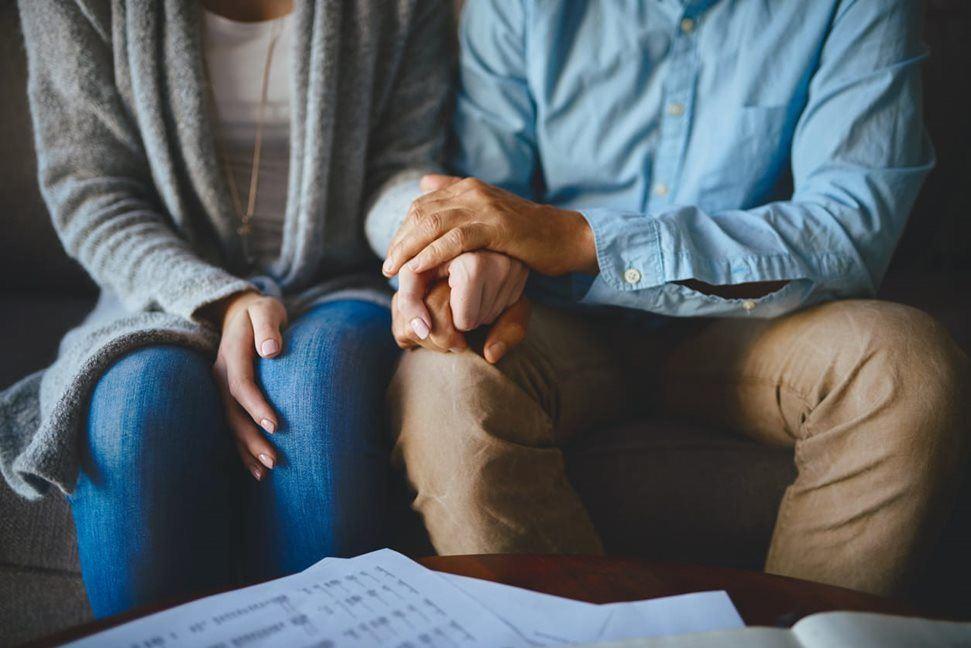Dealing with the Loss of a Loved One

We’re currently navigating through a period of huge uncertainty. Sadly, due to coronavirus, some of us may experience the death of a loved one over the coming months. Here, Bogdan Wawrzaszek, Counsellor and Psychotherapist with Zevo Health, outlines how to deal with overwhelming feelings of grief.
What is Grief?
Grief is a natural reaction to loss. It appears when someone or something you love is taken away from you. Amongst all the painful losses, like relationship breakup, loss of health or job, miscarriage or retirement, the greatest is probably the loss of a loved one. When someone you have loved is taken away, you may find yourself in a very dark and hopeless place. The pain can be overwhelming and all consuming. You may find yourself confused with a wide range of feelings. Grief is often accompanied by shock, disbelief, anger and profound sadness. Grief can affect your mental and physical health, making it difficult to sleep, eat, or even think straight.
The Grieving Process
There is no right or wrong way to grieve. The process of learning how to be without your loved one takes time and depends on your personality, coping style, life experience, faith and much more. It may take weeks or months, and for some it is a process that takes years. It is important that you learn how to be patient with yourself and allow the natural process to unfold.

The Stages of Grief
In the 1960’s, psychiatrist Elisabeth Kübler-Ross introduced the idea of stages of grief. Based on her experience of working with people experiencing bereavement, she distinguished five distinct stages in the grieving process:
1. Denial: “This can’t be happening to me.”
2. Anger: “Why is this happening? Who is to blame?”
3. Bargaining: “Make this not happen, and in return I will …”
4. Depression: “I’m too sad to do anything.”
5. Acceptance: “I’m at peace with what happened.”
If you are experiencing any of those feelings, know it is natural and that you will heal with time. It is important to know that each grieving process is individual and you do not have to go through each stage in order to heal.
Grief & Your Physical Health
Grief is not only an emotional distress; it can also impact your physical health. Some of the health issues associated with grief are:
• Fatigue
• Nausea
• Lowered immunity
• Weights loss or weight gain
• Aches and pains
• Insomnia
How to Support Yourself
After losing a loved one you might feel the need to withdraw from any company. It is important to know that face-to-face support is vital to the healing and recovery. You do not have to talk about your loss during every conversation, sometimes simply being around other people can be helpful.
Friends and family can be of great support. Talking through your feelings with someone you trust and feel safe with can be of great value.
Find comfort from your faith. If you are a religious person, you might find comfort in your faith. Spiritual rituals like praying, meditating or meeting in a community can offer you solace and steady ground under your feet.
Support group. Sharing your thoughts and feelings with people who experienced similar pain can be of great support. You can find such groups in hospitals, funeral homes, hospices and counselling centres.
Talk to a psychotherapist or a counsellor. Mental health professionals can offer you support and assist you through your grieving process. An experienced therapist can help you to work through your feelings so they will not be overwhelming to you.
Are you currently grieving the loss of a loved one, or just feeling overwhelmed by the current coronavirus situation? The Irish Life Health LifeWorks app is full of tools and resources to help you cope with emotional challenges.
Created April 2020.